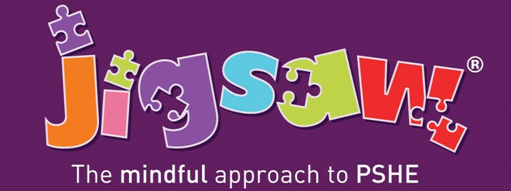PSHE
PSHE
Curriculum Design Statement
Curriculum Intent
At Boldmere, it is our intention to equip children with the tools for life, developing in them emotional literacy and life skills in order to provide them with the agency to make their way through the world.
Curriculum Implementation
At Boldmere, the core of our PSHE curriculum is taught via the Jigsaw programme, the same as that used in our federated infant school, which has been adapted to our context through the creation of a progression map. This ensures that the knowledge, skills and understanding build progressively throughout infants and juniors. The jigsaw scheme was chosen as it is a programme that was designed to teach children emotional literacy, social and life-long skill and resilience in an age appropriate way that aligns with our vision and ethos as a school. Routinely, children are provided frequent refection opportunities, often captured through journaling. The school has adopted the statutory guidance regarding Relationships and Health education from September 2020, which also includes the optional teaching of sex education at an age appropriate level following a consultation with parents.
Curriculum Impact
- The organisation of curriculum learning ensures that all learning (arranged into themed ‘puzzles’) follows a shared theme across the school. This ensures that learning can be appropriately celebrated, consolidated and that shared vocabulary can be referred to across the whole school.
- The programme provides a whole school approach which establishes consistency and provides teachers with structure and support with subject knowledge. Key vocabulary is routinely shared, discussed and modelled into sentence stems to ensure children acquire a sufficient grasp of the subject content being learned.
- The profile of personal development and PSHE at Boldmere is enhanced through our school’s six core values.
- Through the use of journals, children are taught to develop the ability to recognise their thoughts and feelings which consequently improves their ability to manage these. (This links directly to our TIAAS training).
Quizzing has been effectively implemented to ensure that children have acquired an excellent grasp of current learning and are able to make links to prior learning.

What does PSHE look like at Boldmere Junior School?
Jigsaw aims to meet children’s needs in this ever-changing world and does not shy away from the most sensitive issues, such as bereavement and family change. Therefore, establishing a safe, open and positive learning environment based on trusting relationships between all members of the class, adults and children alike, is vital. To enable this, it is important that ‘ground rules’ are agreed and owned at the beginning of the year and are reinforced in every ‘puzzle piece’.
• We take turns to speak
• We use kind and positive words
• We listen to each other
• We have the right to pass
• We only use names when giving compliments or when being positive
• We respect each other’s privacy (confidentiality).
Journals
So, how would children, and their learning, benefit if they could be aware of their thoughts and feelings as they arise, in the present moment, on purpose with no judgement? This is what mindfulness is.
• To be aware of your thoughts and feelings as they happen;
• To be able to consciously focus your mind on what you choose to focus it on, both outside of you and within you.
Thoughts and feelings motivate and determine actions/responses/behaviours. If we are caught up in thoughts and feelings and are not aware of them as they happen, the responses that follow may not be under our control, and may not be in our best interest or appropriate in the situation. If a child can be aware of their thoughts and feelings as they arise, they can choose to regulate/ manage their thoughts and feelings by using the interventions taught in lessons. This is empowering.
In lessons, children are asked to ‘stop and look inside’ to practise observing their thoughts and feelings relating to what they are learning about. By reflecting, children can process and evaluate what they have learnt, which enables them to consolidate and apply their learning. They are also asked to stop and become aware of their thoughts and feelings to develop their mindfulness. Children at Boldmere Junior School record these reflections in their own journals, and have the freedom to express them in any given way.
Relationships and Health Education
Jigsaw fulfils all the requirements for the statutory Relationships and Health Education curriculum, as announced by the Department for Education in England in 2019, for full implementation from September 2020. Jigsaw’s philosophy starts by building positive self-image, a sense of identity and a healthy relationship with self, and from that starting point helps children grow healthy relationships with others. Health Education in Jigsaw embraces not only physical health but also has a strong focus on mental health and emotional literacy throughout, and empowers children to be aware of their own thoughts and feelings and know how to manage and regulate these.
The DFE statutory guidance (England 2019) expects schools to deliver work on puberty. This sits under the Health Education statutory expectations. This work is done in the context of managing change and is age-appropriate. At Boldmere Junior School, an outside agency delivers age appropriate lessons to year 5 and 6 separately, that meet the national curriculum requirements and are founded on scientific knowledge and understanding. Class teachers are also present so they understand the content of the sessions and can therefore support the children appropriately.
.png)
